Gay bars of the XVIII century: a pleasure that could have cost your life
Categories: History | Society | World
By Pictolic https://pictolic.com/article/gay-bars-of-the-xviii-century-a-pleasure-that-could-have-cost-your-life.htmlBeing caught in the so-called "molly's houses" was not just dangerous — in the XVIII century it could easily lead a man to the gallows. And yet such secret houses continued to exist in a deep underground, because everyone needs to feel like they are among their own.
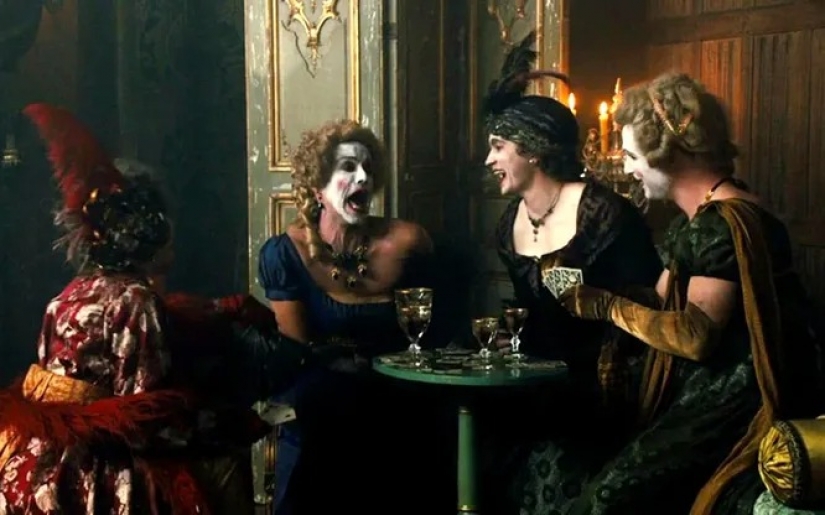
In 1709, a journalist from London, Ned Ward, a prude and a guardian of morality, tried to make the description of a gay bar nauseating, but it turned out that the guys were just having fun together.
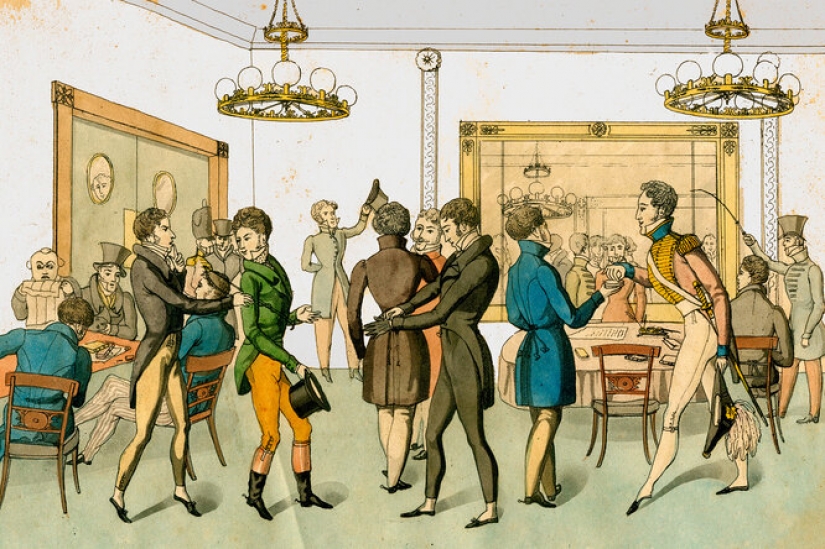
In the 18th and early 19th centuries, gay people in Britain were called "molly" - often an offensive nickname, but sometimes it was treated more neutrally. Presumably, the roots of this word go back to "mollis" — the Latin word for" soft "and"feminine".
Molly's subculture lurked behind the closed doors of London clubs and bars — the only places where gay men could feel safe, relax and be among their own. One of them was hiding in the shadow of Newgate Prison, the other was hiding in the rooms of a tavern called the Red Lion. Men met there in search of sex and love, had fun and even arranged carnival "weddings".
Until the XVIII century, according to historians Jeffrey Merrick and Bryant Reagan, homosexuality occupied an almost neutral place among other sins. She was treated in the same way as a love of drinking or an addiction to gambling — that is, she was condemned, but approached with understanding. Yes, someone is cheating on his wife, someone likes to drink, and still others prefer men to women... well, everyone has their own weaknesses.
But already in the XVII century, everything began to change. In 1533, long before the situation became really dangerous, Henry VIII (the one who had many wives) issued the "Sodomy Law" — an English legal act of 1533, providing for the death penalty for sodomy. This, however, included not only same-sex contacts between men, but also anal sex with a woman, and even bestiality.
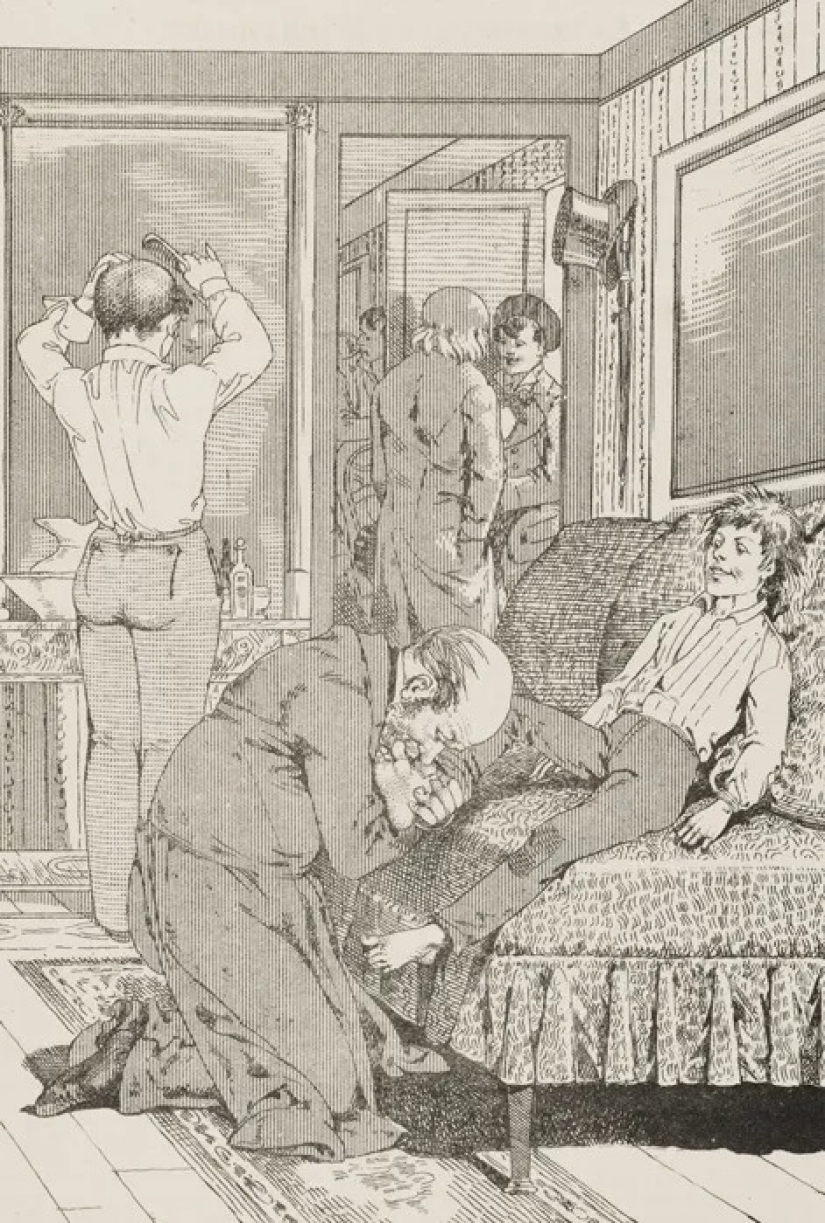
But if at the very beginning of the adoption of this law, it was almost not applied in practice, then 150 years later the situation has changed. The attitude towards gays had become noticeably worse, and now love for one's own sex was literally becoming deadly.
And although Oscar Wilde called homosexuality "a love that does not dare to call itself," most people treated this phenomenon much less romantically. It began to be considered a crime against God, something demonic, more serious than all other sins.
In such an atmosphere, gays simply needed a place where they could feel safe. Sometimes they were houses with more or less permanent residents and visitors, at other times they were taverns. They had two things in common: anyone who was privy to the location could get in there without too much noise, and drinks flowed there like a river.
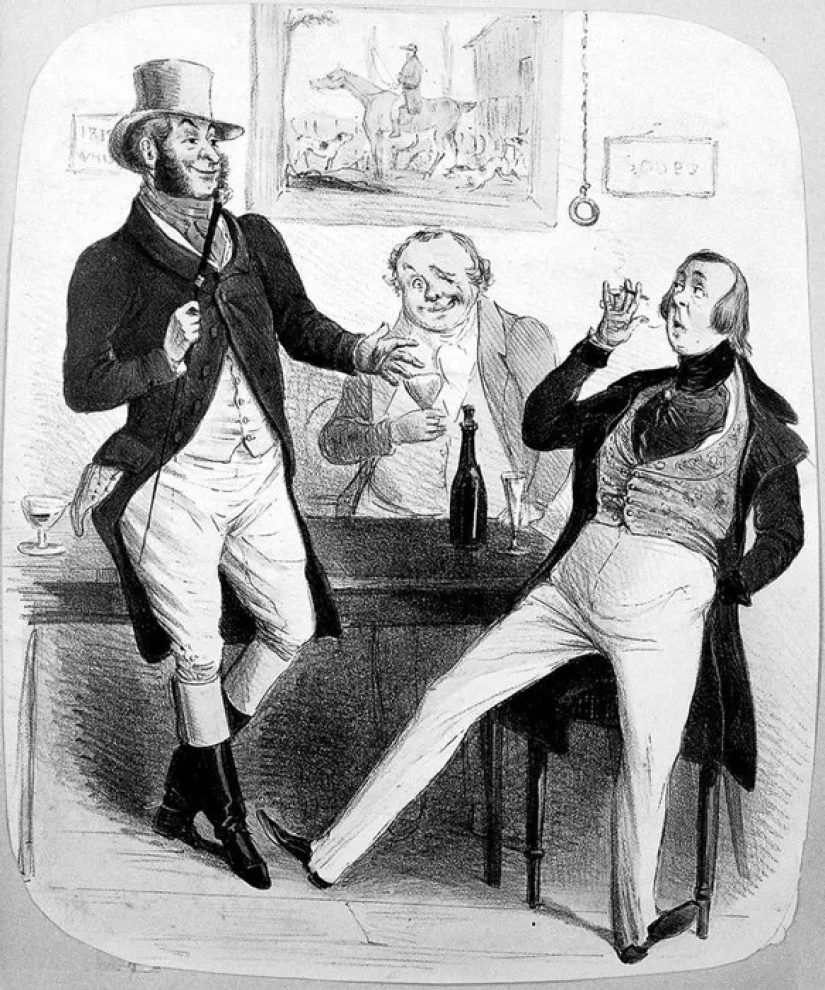
Samuel Stevens worked undercover for the Reformation (Reformation of Manners) — a religious organization whose members vowed to eradicate everything that was not pleasing to God-from sodomy to sex workers. In 1724, he brought constables to one of the bars that he had previously calculated.
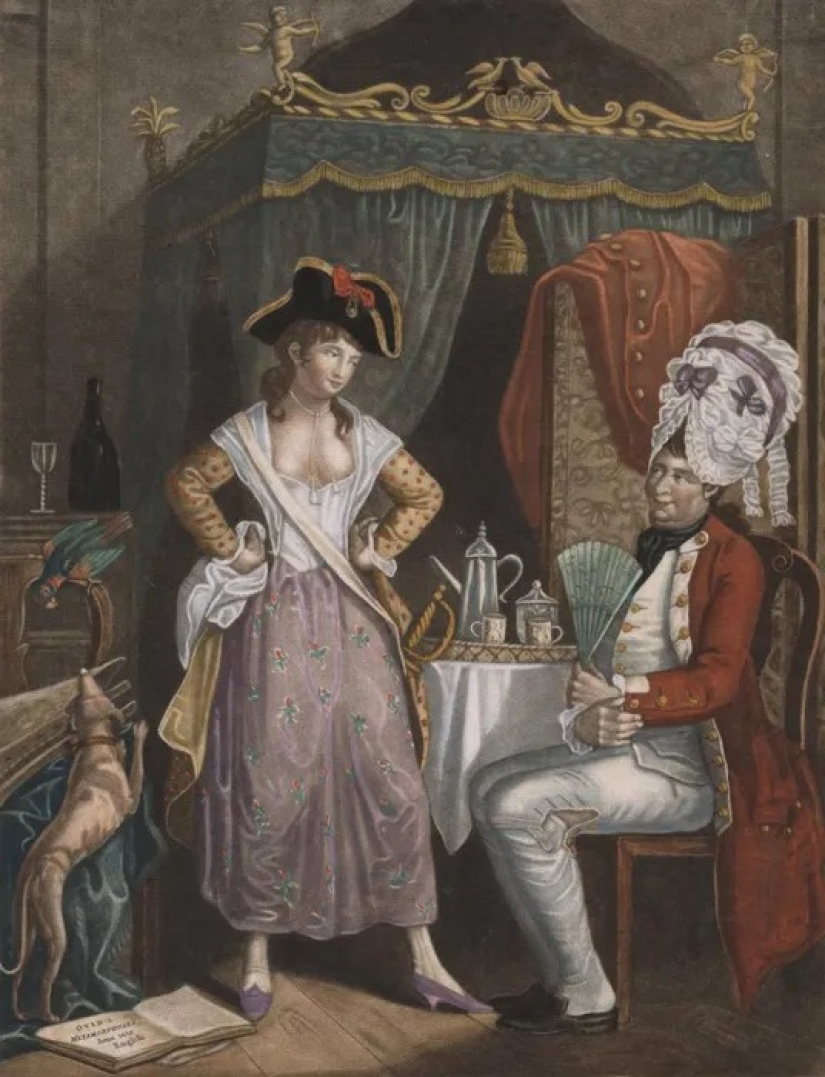
Since most of the information about such institutions came to us from the mouths of such as Stevens, or such as Ward, that is, people who treat homosexuality with contempt, they described the sexual side of molly's life with the greatest detail. Although, most likely, there was another one — much more important. The need to be close to your own kind, a sense of elbow, the formation of your own culture within a hostile society.
According to other court records, it was not uncommon for men to disguise themselves as women:
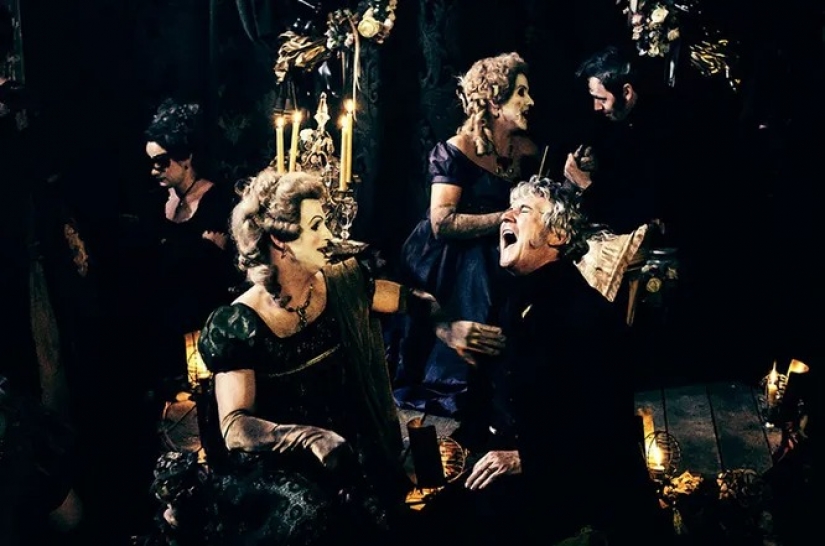
Apparently, a kind of theatrical action was adopted in "molly's houses", which has no analogues in modern culture. In Ward's article, there is a description of how two men called each other "sister"performed. One of them put on a woman's dressing gown and began to pretend that he was giving birth. A wooden child was taken out from somewhere, everyone began to have fun, celebrate and even played a buffoonish rite of baptism.
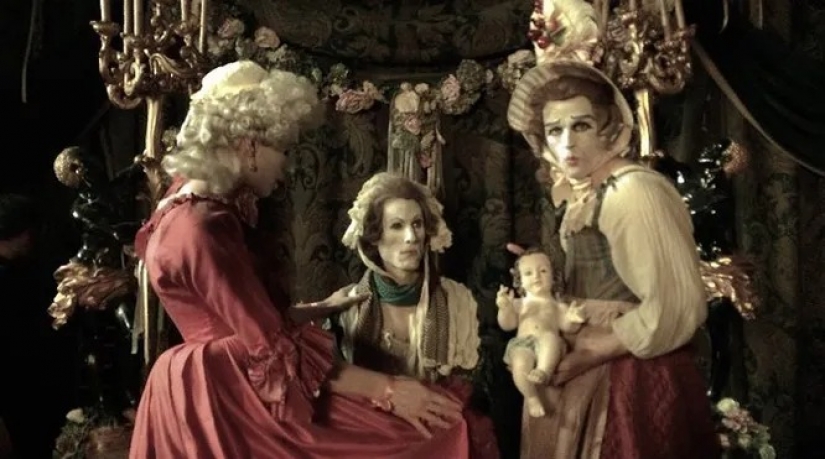
Other men dressed up as nurses and began fussing over a wooden baby. In some "molly's houses", wedding ceremonies were also played out: men could go into the "Wedding Room" and "consummate the marriage" there. The door was guarded by a special person, he made sure that no one disturbed the" young".
The insecurity and relative fame of "molly's houses" came out of the unfortunate side. The police regularly raided these establishments, and the men who were detained were thrown into prison, where they were waiting for the gallows. In the mid-1720s, raids became especially frequent. Informants who were well acquainted with the" molly houses " allowed the police to pretend to be their husbands.
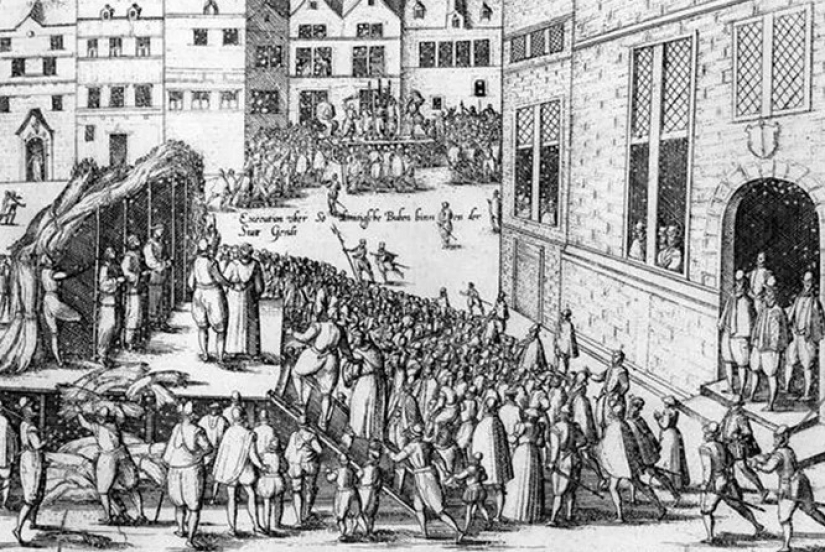
One of the most famous was the raid on the White Swan bar in 1810. The police detained 30 men. To reach the guardhouse, the prisoners were forced to pass through an angry crowd that threw objects at them, laughed and humiliated them. Only two, however, were sentenced to death.
The rest went to the humiliating hours at the pillory, where anyone passing by could spit in their face, insult them or throw rotten things — dead cats, rotten fish and eggs. The men's faces and bodies were covered with wounds from blows. An hour later, a ring of 50 women formed at the pillory, who threw objects at the prisoners without a break until they lost consciousness.
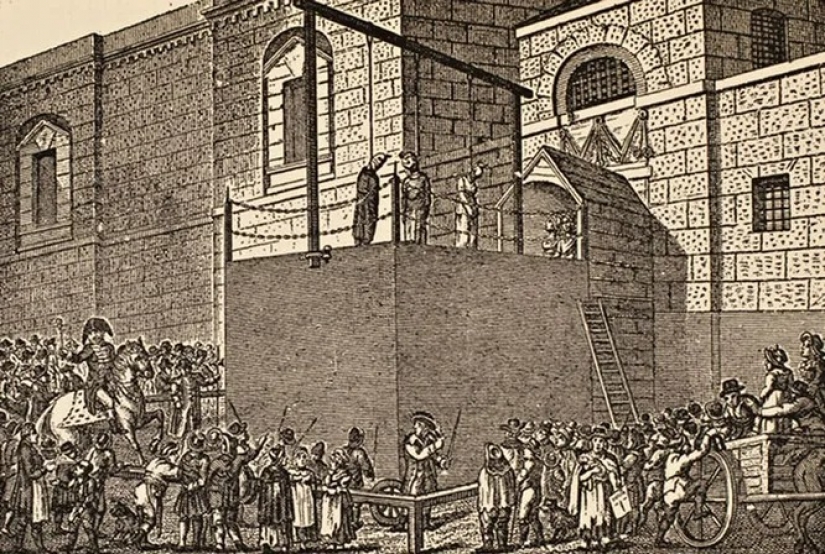
The raids forced gays deeper into the underground, but did not eradicate their culture. The Criminal Law Amendment Act (1885) was adopted, containing the "Labouchere Amendment", according to which men accused of "gross indecency" (English gross indecency), which meant all kinds of homosexual activity in cases where sodomy could not be proved, could be sentenced to prison or hard labor for up to two years.
And only in 2003, with the adoption of the Sexual Offences Act 2003, the concepts of "sodomy" and "gross indecency"completely disappeared from the legislation.
Keywords: Bar | Gays | Life | The middle ages
Post News ArticleRecent articles

Do you like to cook, buy food for the future, but the short life of vegetables and fruits does not give you peace of mind? There is ...

Ideally, veganism involves not only the rejection of eating animal products. It is a way of life where there are products which ...
Related articles

Who does not know the greatest French singer, whose songs have become world hits, and she herself is an example for millions to ...

We have already shown you the masterpieces from the ATBGE subreddit: A monstrous taste, but a great performance, but now another ...

In 1936, the first issue of LIFE magazine was published, which in all subsequent years began to publish photos of the most famous ...

Charlie Chaplin is known throughout the world; his career as a silent film actor lasted 75 years, ending with his death. Chaplin ...